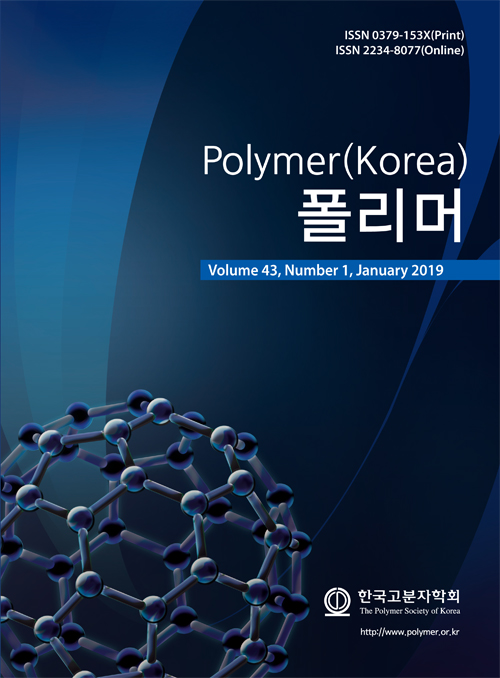- Study on the Micro-Bonding Test Droplet Fabrication Method of PP-GF Fiber Reinforced Thermoplastic Composites
Sanghoon Kim, Chanhyeok Um, Youn Ki Ko, Pyoung-Chan Lee, Chulhyun Park*, and Jin Uk Ha†

Lightweight Material R&D Center, Korea Automotive Technology Institute, Cheonan-si, Chungnam 31214, Korea
*R&D Center, Large Co., Ltd., Dalsung-gun, Daegu 43023, Korea- PP-GF 섬유강화 열가소성 복합재료의 미소접합시험 액적 제작법 연구
자동차부품연구원 경량화소재연구센터, *(주)라지
In this study, a new analytical method for improving inaccurate data due to the thermal degradation from the interfacial shear strength (IFSS) between fiber and resin of micro-bonding test was investigated. In order to minimize thermal degradation and obtain the symmetry of the droplet, a new type of melting method was introduced using a device made with modified hot plate. Polypropylene as a test resin and glass fiber as a fiber were used. Optimum embedded time was compared and confirmed with different melting devices, temperatures, and exposure times. Furthermore, interfacial strength and energy release rate were compared and calculated by operating micro-bonding test. Droplet produced under the inert atmosphere and optimum embedded time of 300 ℃ showed the highest adhesion strength. In addition, specimen prepared under the air and heating time of 1.5 min produced optimum droplet.
본 연구에서는 미소접합시험을 이용한 섬유와 수지사이의 계면전단강도(interfacial shear strength: IFSS) 측정시 열분해로 인해서 부정확한 데이터를 개선할 수 있는 새로운 분석법 연구를 수행하였다. 열분해를 최소화하고 액적의 대칭성을 확보하기 위하여 핫플레이트를 변형하여 제작한 장비를 이용하여 새로운 형태의 용융방식을 도입하였다. 시험수지로는 폴리프로필렌을, 섬유는 유리섬유를 사용하였다. 액적 용융 장비, 온도, 시간 조건에 따라 액적을 만들어서 최적함침시점을 확인하였다. 또한 미소접합시험을 진행하여 계면전단강도와 에너지해방률을 비교 분석하였다. 그 결과, 불활성 분위기와 최적함침시점 300 ℃에서 제작한 액적이 일반적으로 우수한 접착 특성을 보였다. 또한 공기 중에서 약 1.5분의 제작시점에서 최적화된 액적을 확인하였다.
Keywords: thermal degradation, interfacial shear strength, energy release rate, droplet
- Polymer(Korea) 폴리머
- Frequency : Bimonthly(odd)
ISSN 0379-153X(Print)
ISSN 2234-8077(Online)
Abbr. Polym. Korea - 2023 Impact Factor : 0.4
- Indexed in SCIE
 This Article
This Article
-
2019; 43(1): 132-138
Published online Jan 25, 2019
- 10.7317/pk.2019.43.1.132
- Received on Sep 17, 2018
- Revised on Oct 7, 2018
- Accepted on Oct 30, 2018
 Correspondence to
Correspondence to
- Jin Uk Ha
-
Lightweight Material R&D Center, Korea Automotive Technology Institute, Cheonan-si, Chungnam 31214, Korea
- E-mail: juha@katech.re.kr









 Copyright(c) The Polymer Society of Korea. All right reserved.
Copyright(c) The Polymer Society of Korea. All right reserved.